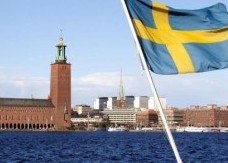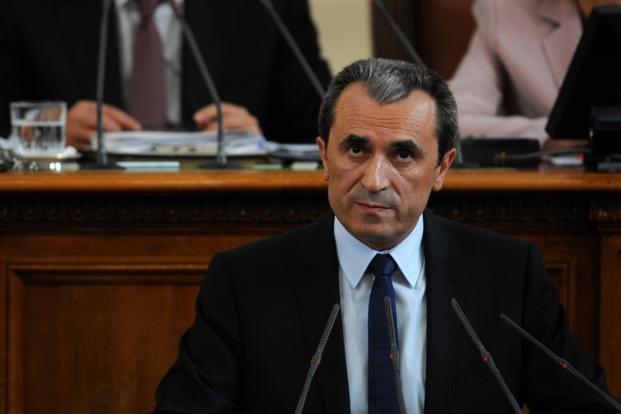
In the wake of the German elections – the all-too-soon forgotten Euro Hawk drone scandal
Was it not Germany’s choice and commitment to be a civilian power? The German federal elections have run their course and the CDU/CSU gained the lion’s share of the public’s support. Apparently the electoral results were unaffected by the major political scandal of the summer – the spectacular failure of the Euro Hawk surveillance drone programme. The program has been in the making for 13 years during three consecutive government mandates – in two of these mandates the CDU/CSU has been the major political power. The ‘rise and fall’ of the surveillance drone has also come at a cost of half a billion euros to the German taxpayers. Should such a scandal be forgotten so quickly?
‘Drones’ evoke recent American military campaigns, rather than the dusty Ministerial offices in the German capital. Thus, in the summer of 2013, the news of the ‘rise and fall’ of a German surveillance drone caught the German and European public by surprise. As the long silence of the German government on the acquisition of this new military capability was suddenly broken, the public learnt with astonishment that for 13 years the programme has been lurching on, even though the surveillance drone’s flying problems have long been ‘ a fact universally acknowledged.’ Years have gone by, but the technological problems have remained unresolved and the aviation authorities would not certify the Unmanned Aerial Vehicle (UAV) due to its lack of an anti-collision system. In 2013, Germany finally bid an official farewell to the Euro Hawk. Amidst the noise of the heated televised debates and the tearful (for some) farewell to this particular weapon, the old message that once Hemingway made about the hopelessness and futility of war was all but muted.

The European Commission is wrong about Romania’s Rosia Montana mining project
For the past seven weeks, Romanians have been leading one of the largest environmental protest movements in the world. Around 200,000 Romanians have taken to the streets in cities across Romania and the world to protest against the government’s recent approval of draft legislation for an open-pit cyanide-based mining project at Rosia Montana. According to Gabriel Resources Ltd., the Canadian company behind the scheme, the plan for the project is to dig up an estimated 314 tonnes of gold squirrelled away in Rosia Montana, using 40 tonnes of cyanide per day.
Despite the protests, the European Commission (EC) did not make a statement until only recently. The Commission’s response was prompted when Commissioner Janez Potocnik received a letter soliciting information on the EC’s intended actions regarding Romania’s moves to accelerate the authorization of the mining project, which would use environmentally dangerous cyanide leaching technology.
But a spokesperson representing the Commission emphasized that it was not concerned with the Rosia Montana project because it so far does not breach any EU environmental regulations. The spokesperson added that, as long as the Canadian company obtains its needed licenses, the project would be fine.
The Commission is wrong.

How Europe exited its crises: is there a federal future for Europe?
Over the past four years some of us may have forgotten that the financial crisis did not start in Europe, but in the USA. If it makes sense to ask ourselves where it all started, it is even more relevant for us to understand what happened on this side of the Atlantic. It is in fact in Europe that the crisis (or the crises) has found a fertile ground to develop and unravel the Eurozone. “Spread”, “bailout”, “rating agency” have become terms that Europeans have become acquainted with, while austerity policies have hit them as it has not happen for decades.
In addition, the crisis came at a time of extreme volatility in global, European and national politics and has arguably contributed to accelerate some trends which were already starting to appear at the beginning of the century. The consolidation of Asia as the new engine of economic growth; the rise of new economic powers such as the BRICS; the negotiations of extensive Free Trade Agreements in an attempt to benefit from access to growing markets and to US to maintain an upper hand in setting global standards (among the others the EU and South Korea FTA and the on-going negotiations between EU and Canada, and the EU and the USA). Domestically the EU is also facing new tensions: a sharp rise of euro-scepticism and of nationalist movements has been registered in many European countries, including Italy, France, Germany, Hungary and the UK, with the UK arguing for a referendum on its own EU membership in 2017. Separatist movements are getting stronger in several regions including Scotland, Catalonia and Flanders. Last but not least, socio-economic challenges are increasingly evident, with unprecedented rates of youth unemployment, an ageing population and the European welfare systems increasingly under pressure.
Together these external and domestic challenges, mixed with the aftermath of the Eurozone crisis in all its facets, constitute an explosive mix. As we are approaching a key electoral year, with the elections of the European Parliament as well as with national elections in several countries including Germany, it is about time to draw some lessons from what happened in Europe and to envisage a possible way to move forward.

The case for political reform in Europe
The recent economic crisis has revealed, amongst other things, that certain political systems in southern Europe seriously struggle to deliver good governance. Political elites in Italy, Greece, Portugal and Spain have not only proven incapable of delivering prosperity to their people but have presided over (and in some cases profited from) highly corrupt structures. Although austerity and economic recovery have been given priority until now, it is high time political reform is discussed, and the root causes of this crisis are tackled. The inability to do so would have consequences that go well beyond the borders of Europe.
The shortcomings of political systems in the south of Europe have manifested themselves in two fundamental ways. The first has been through the failure of elected leaders to bring prosperity to their people. With years of economic recession, several bailouts and a generation of young people forced to leave their countries in search for jobs, it is hard not to question the ability of past Spanish, Greek, Italian and Portuguese governments. In Italy and Greece the incapacity of elected leaders to tackle the economic crisis was so great that government responsibilities had to be handed over to “technocrats”. These highly qualified caretakers were asked to accomplish in a very short period of time what traditional political leaders had failed to do in decades: keep public spending under control, and make their countries’ economies more competitive.

Sweden’s Social Democrats: the insider-outsider dilemma
The most important event in Swedish party politics in the past twenty years is the decline in the electoral fortunes of the Social Democratic Party.
For most of the post-war period, electoral support for the Social Democrats hovered around 45 percent. As late as 1994, in fact, the Social Democrats won 45.3 percent of the vote. Their best election since then was in 2002 (39.9 percent). In 1998, they received 36.4 percent; in 2006, 35.0; in 2010, only 30.7.
What sets the elections of 2006 and 2010 apart is that the combined support for the center-left fell sharply. The Social Democratic losses in 1998 were associated with a surge in support for the Left Party, allowing Göran Persson to remain as prime minister after the election. Between 2002 and 2010, by contrast, the support for the Left Party and the Greens did not increase at all; the combined support for the center-left therefore fell from 53.0 to 43.6 percent.
These are momentous changes, and scholars and political commentators will no doubt puzzle over them for years to come. In a recently published paper, we show that an important part of the explanation is that the Social Democrats have become unable to reconcile the demands of two groups of voters that have traditionally sup-ported them: on the one hand labour market “outsiders,” who have insecure jobs or no jobs at all; on the other hand labour market “insiders” with stable employment. The deep economic crisis in the 1990s changed the Swedish labour market. It greatly increased the number of outsiders, rendering the latent conflict between insiders and outsiders salient.

The push for a transatlantic trade deal: should ‘culture’ be off the table?
When in February 2013, US President Obama called for negotiations on a US-EU free trade agreement and was immediately echoed by EU officials van Rompuy and Barroso, widespread enthusiasm came first: Businessmen cheered the vision of joining the two regions accounting for almost half of the world’s GDP, and economists stood ready to present their age-old calculations about the benefits of free trade. Yet soon, controversy rose, and some Europeans had their reservations about deregulating their cultural industries. Does free trade work for European culture?
In times of crisis, the (all but new) idea of free trade in the North Atlantic area comes in handy. Certainly, agreement over the “Transatlantic Trade and Investment Partnership” (TTIP) could remove unnecessary trade barriers and boost growth at no cost. In the words of EU trade commissioner Karel de Gucht, it is “the cheapest stimulus package you can imagine”. If negotiations succeed, Europeans can expect the creation of some 400,000 jobs, according to the Commission’s calculations. Given the state of labour markets, a spark of hope.

After the Protests: Time for a new politics in Turkey
The balance sheet after three weeks of protests and police violence in Turkey is grim: four people were killed, more than 7,000 wounded, 11 lost their eyesight and several hundred detained. What began as a localised protest over a shopping centre and the demolition of the Gezi Park in Istanbul’s central Taksim Square turned into a nationwide conflagration in response to the inciting rhetoric of Prime Minister Recep Tayyip Erdoğan and the unfettered police brutality unleashed upon peaceful protestors. The image of German Green Party Chairwoman Claudia Roth, barely able to speak following a teargas attack on her hotel next to the Gezi Park, will come to haunt Turkey’s political elites for years to come.
It is hence not surprising that a significant portion of Turkey’s society, which also feels unrepresented by the infighting-plagued main opposition party, was ready to go to the streets, when the initial protests over the shopping centre were brutally repressed.

The New Bulgarian Government: A fresh beginning or more of the same?
Bulgaria’s parliament recently approved a new centre-left government, ending a three-month stalemate after the previous centre-right government resigned in February 2013 amidst widespread anti-austerity protests. Despite the seriousness of the task it faces, which includes addressing the protesters’ grievances and ensuring Bulgaria’s economic development, due to a lack of parliamentary majority, the new government is unlikely to bring any significant changes and distance itself from the previous one.









